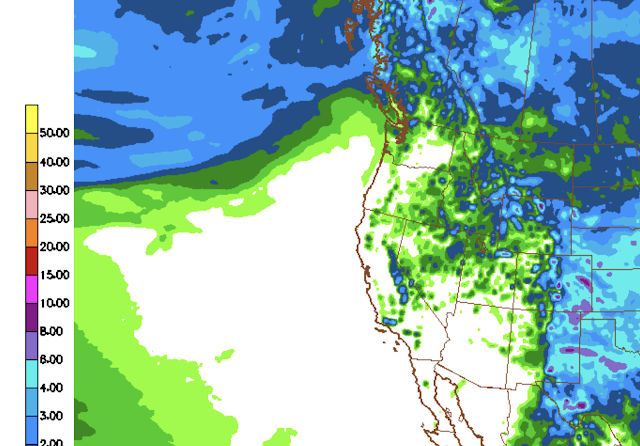Although a lot of this smoke is staying loft, the latest AIRNOW air quality index map shows some of the smoke reaching the surface in southern Alberta and Montana, substantially reducing air quality there.
According to a recent run of the NOAA/NWS HRRR-smoke modeling system, the smoke will move southeastward during the next day. The Northwest will continue to enjoy clear skies.
The fires of concern are found in the boreal forest in northern Alberta (see below), with the major burns starting in mid May. The biggest fire, the Chuckegg, began on May 12th and is now over a half-million acres in size.
The weather conditions associated with the northern Alberta fires is of interest. Interestingly, temperatures during the May have been cooler than normal most of Alberta , in contrast to warmer than normal conditions over BC (see below)
On the other hand, conditions have been drier than normal over the same period, with some parts of northern Alberta receiving 40% or less of normal precipitation.
Having big Alberta fires in May is not unusual. Many of your might remember the huge Fort Murray wildfire that started on May 1, 2016 or the May 2011 Slave Lake fire.
May is a vulnerable month for fires in northern Alberta. That area is downstream (in the rain shadow of) the Rocky Mountains, and winters tend to be dry. To illustrate, here is the average monthly precipitation at Edmonton, Alberta, a location that receives about 18 inches per year (Seattle enjoys twice that). May is the beginning of the thunderstorm season and after a dry winter and with rapidly increasing temperatures, the forests are ready to burn.
But there is a something more. Many decades of fire suppression has created a very dangerous situation in which the northern Alberta forests are unnaturally dense with growth and ready to burn catastrophically.
You have heard that story before. Climate change may well contribute to more fires as the century progresses, but the key issue today is not global warming, but mismanagement of forests.
One more thing---and a good one. The latest NOAA/NWS GFS run has a lot of precipitation falling over the next two weeks over Alberta and BC (see below). So we should have a good moistening and cooling pattern that will work against new fire starts to our north and northeast.











Speaking of northern Alberta, and since climate change is a regular discussion topic in this blog, this article in the NY Times about the impact of earthworms spreading north into the boreal forests, and the potential impact on climate change, is quite remarkable. Whether invasive earthworms, and resulting loss of organic layers in soil, are contributing to forest fires, I don't know, but it is an interesting question, and example of the how interactions between the biotic and abiotic forces in the world can be powerful and unexpected.
ReplyDeletehttps://www.nytimes.com/2019/05/20/science/earthworms-soil-climate.html
Thanks for keeping us updated about notable fires. It's hard to find the pertinent facts in general media outlets usually--especially as it relates to the Seattle area.
ReplyDeleteKeep up the good work!
If only they raked their forests!
ReplyDeleteNot only is May a vulnerable month for wildfires in Alberta but this is true for much of the boreal forest and the time frame often extends into June and early July. Our favorite time to go on long canoe trips in Northern Saskatchewan used to be in June but we got tired of being smoked out. Now we go after mid-July by which time the summer rains have usually started.
ReplyDeleteEven after all of the evidence, we still have huge undergrowth due to forest mismanagement. This is a demonstrable own - goal that has received scant attention on the MSM. We need not wonder why.
ReplyDelete